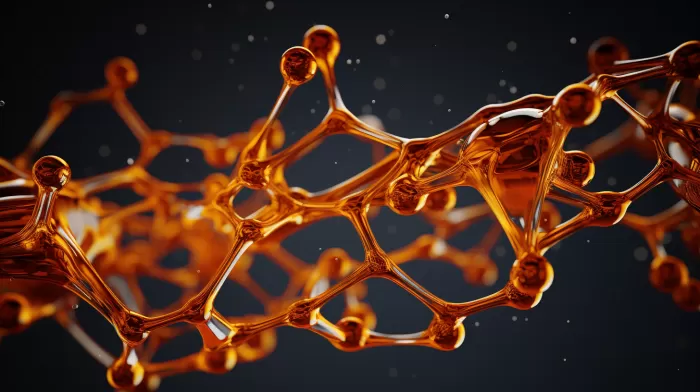Poor eating habits can easily become a vicious cycle…
Say, for instance, you start eating too much junk food — chips, ice cream, crackers, sugary cereals — the usual suspects.
If you do it for too long, you may find that this junk food habit changes your body chemistry and appetite in a very bad way. All thanks to chemical food additives.
Take the food additive Butylated Hydroxytoluene (BHT) as an example…
BHT has been added to processed foods since the 1950s to keep fats and oils from going rancid. You’ll also find it on lots of cereal boxes, in dried soups and enriched rice products. But research on this popular food additive shows that it probably comes with some unfortunate side effects…
Like preventing your stomach from telling your brain you’re full and sending your appetite into overdrive.
The BHT communication breakdown
A recent study from researchers at Cedars-Sinai confirmed a fact that other studies have been hinting at for years… that BHT could be breaking down communication between your gut and brain. And as a result, it could be making you gain weight.
In the past, animal studies showed that BHT has a connection to obesity. Animals who ate more of it, were more likely to deal with weight issues. But this time around, researchers tested its effect on human stem cells. And here’s what they found…
Chronic exposure to BHT damaged hormones that help your gut send messages to your brain. That means it could be interfering with your stomach’s ability to tell your brain you’re full, making you more likely to overeat and become overweight.
Researchers found that other common chemicals do this too — perfluorooctanoic acid (found in some cookware, cardboard packaging used in the fast food industry, carpeting and tons of other common products) and tributyltin (a compound in paints that’s also found its way into seafood). But BHT was by far the worst.
Of course, all three chemicals combined had the greatest impact on your hunger hormones. And chances are, you’re exposed to all three… especially if you’re eating BHT-filled junk food.
But isn’t BHT good for you?
You may have come across a confusing piece of information about BHT in recent years… that it’s an antioxidant, and is therefore good for you. And its true BHT is an antioxidant. That’s actually why it prevents food from going bad… it stops the oxidation process. Some people even take BHT supplements.
But the fact is, while some studies show that BHT has an antioxidant effect, others show it has a carcinogenic effect. And then, of course, there’s what it does to your hunger hormones. So given the potential side effects, I’d play it safe and steer clear of it.
Truthfully, you don’t need BHT anyway. There are plenty of other antioxidant supplements you can take and plenty of antioxidant-rich foods you can eat that are whole, natural and BHT-free.
Avoiding BHT and staying healthy
Butylated Hydroxytoluene, or BHT, may have antioxidant properties, but it’s not the best for your health. Instead, opt for natural ways to get your daily dose of antioxidants. You can find a wealth of antioxidants in whole, natural foods such as fruits and vegetables. Try incorporating more nutrient-rich foods like blueberries, strawberries, kale, and spinach into your daily diet. Besides being full of antioxidants, these superfoods also come packed with other essential vitamins and minerals that your body needs to stay healthy.
If you’re considering taking antioxidant supplements, consult with your healthcare provider for guidance on the best products that are both safe and effective. Always read the ingredient labels of supplements and avoid any that contain BHT. Also avoid processed foods that may have BHT lurking in the ingredients list. Instead, choose fresh, whole foods whenever possible and limit your intake of junk food.
Stay informed, stay healthy
Education and awareness are essential for staying healthy in the face of potentially harmful additives like BHT. Stay informed about the ingredients and additives used in the foods you eat, and take the time to read labels carefully.
By making smart choices and being proactive about your own health, you can avoid the negative effects of food additives and enjoy a healthier life for years to come. And remember, a simple approach to better health is to prioritize whole, natural foods over processed, artificial ones. With fresh fruits and vegetables, lean proteins, and whole grains at the center of your diet, you’ll be doing your body a favor in more ways than one.



